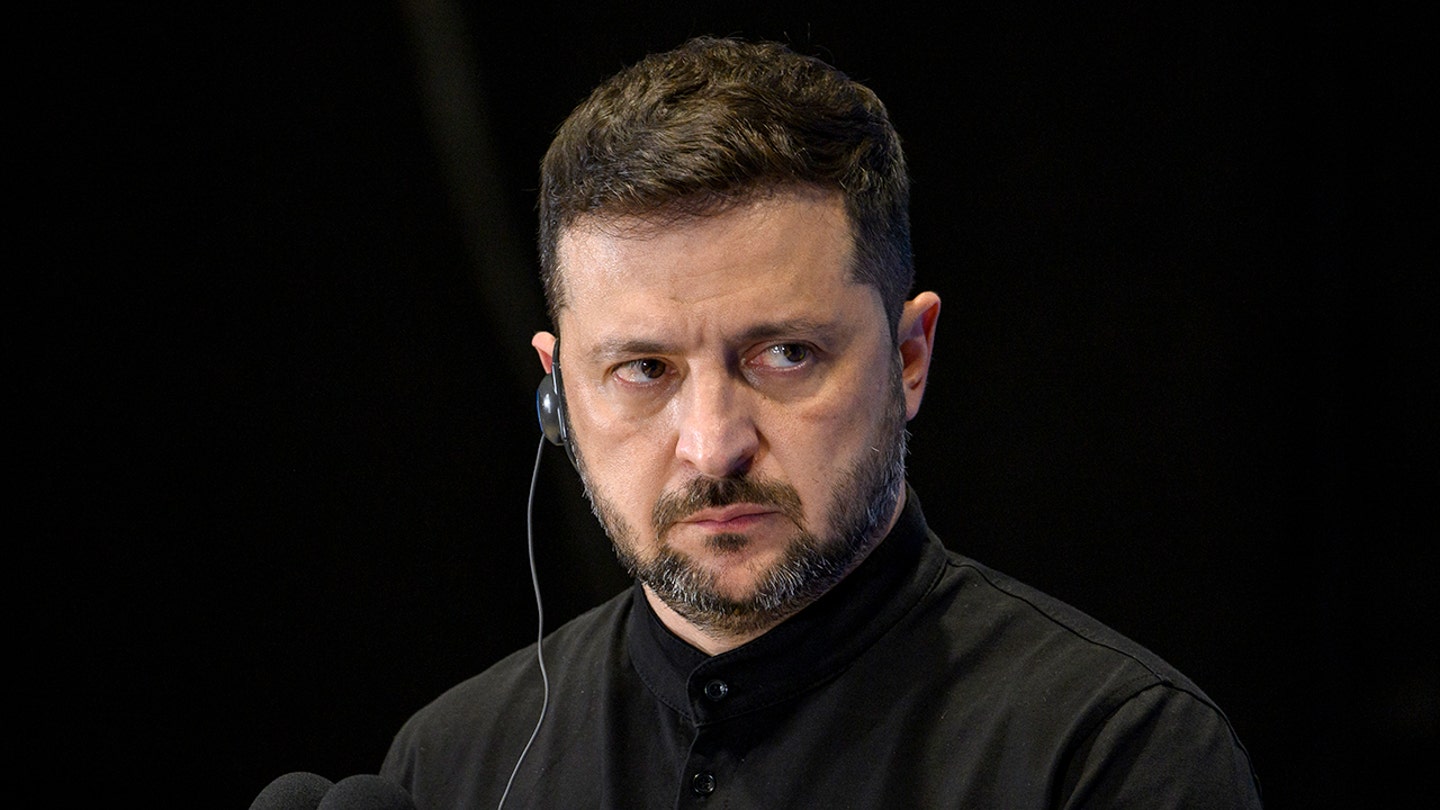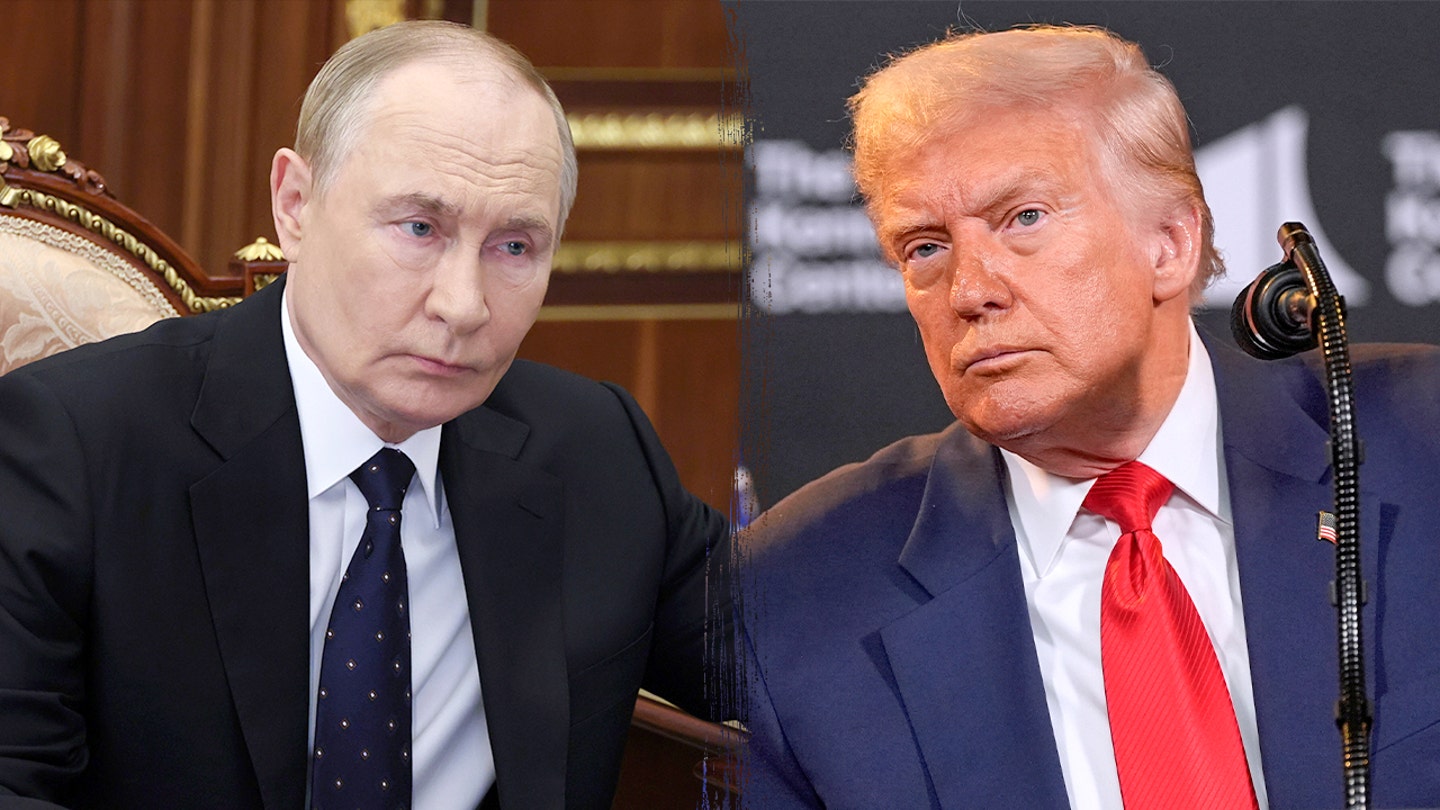
Putin ready to make Ukraine deal, Trump says before Alaska summit
Entities mentioned:
- Donald Trump: Power, Influence, Legacy
- Vladimir Putin: Power, Control, Influence
- Ukraine: Self-preservation, Security, Freedom
Article Assessment:
Credibility Score: 55/100
Bias Rating: 55/100 (Center)
Sentiment Score: 50/100
Authoritarianism Risk: 45/100 (Mixed/Neutral)
Bias Analysis:
The article presents a balanced headline without overtly favoring either side. However, the lack of context or additional sources to verify Trump's claim suggests potential bias by omission.
Key metric: International Relations and Diplomacy
As a social scientist, I analyze that this article suggests a potential shift in the ongoing Ukraine conflict, with Trump claiming Putin is ready for a deal. This could significantly impact US-Russia relations and the geopolitical landscape in Eastern Europe. However, the lack of details and the timing before a summit raises questions about the credibility and motivations behind this claim. It may be an attempt by Trump to position himself as a key diplomatic figure, potentially influencing both domestic politics and international perceptions ahead of the Alaska summit.

There's a reason why Putin decided to invade Ukraine under Joe Biden's presidency, says Katie Pavlich
Entities mentioned:
- Vladimir Putin: Power, Control, Ambition
- Joe Biden: Duty, Influence, Security
- Katie Pavlich: Influence, Recognition, Competitive spirit
- Miranda Devine: Influence, Recognition, Competitive spirit
- Donald Trump: Power, Recognition, Influence
- Fox News: Influence, Competitive spirit, Recognition
Article Assessment:
Credibility Score: 45/100
Bias Rating: 75/100 (Lean Right)
Sentiment Score: 35/100
Authoritarianism Risk: 40/100 (Generally Democratic)
Bias Analysis:
The article leans right due to its source (Fox News) and framing that favors Trump's approach over Biden's. The commentary from conservative contributors without balancing perspectives indicates a right-leaning bias.
Key metric: International Relations and Diplomacy
As a social scientist, I analyze that this article suggests a perceived shift in international power dynamics and diplomatic approach between the Trump and Biden administrations, particularly concerning Russia. The commentary implies that Putin's decision to invade Ukraine during Biden's presidency is not coincidental, hinting at a perceived weakness or change in U.S. foreign policy. The suggestion that Trump could end the war indicates a belief in his different approach to international relations. This framing may influence public perception of U.S. leadership and its global standing, potentially impacting diplomatic efforts and alliances.

Ex-GOP National spox rips commentary rooting against Ukraine-Russia peace deal: 'Absolute shame'
Entities mentioned:
- GOP National spokesperson: Moral outrage, Duty, Self-respect
- I.C.E.: Duty, Security, Control
- Gavin Newsom: Ambition, Power, Influence
- Donald Trump: Power, Recognition, Influence
- Vladimir Putin: Power, Control, Influence
- Zohran Mamdani: Ambition, Moral outrage, Recognition
Article Assessment:
Credibility Score: 55/100
Bias Rating: 55/100 (Center)
Sentiment Score: 35/100
Authoritarianism Risk: 45/100 (Mixed/Neutral)
Bias Analysis:
The article presents a mix of perspectives, including criticism of both left and right-leaning figures. However, the framing of issues and choice of topics suggests a slight centrist tilt, balancing different political viewpoints.
Key metric: Political Polarization Index
As a social scientist, I analyze that this article touches on multiple contentious political issues, including immigration enforcement, international diplomacy, urban crime, and political criticism. The mention of an I.C.E. raid at a Gavin Newsom event suggests ongoing tension between federal immigration policies and sanctuary cities. The upcoming Trump-Putin summit indicates potential shifts in U.S.-Russia relations, while the inclusion of Washington D.C. crime data points to domestic security concerns. The criticism of Trump by a NYC mayoral candidate further highlights the polarized political climate. These elements collectively contribute to increased political polarization, as they represent conflicting viewpoints on key national issues and international relations.

Trump reveals his game plan for meeting with Putin in Alaska: 'It's like chess'
Entities mentioned:
- Donald Trump: Ambition, Power, Legacy
- Vladimir Putin: Power, Control, Self-preservation
- Volodymyr Zelenskyy: Determination, Justice, Self-preservation
- Brian Kilmeade: Curiosity, Professional pride
Article Assessment:
Credibility Score: 70/100
Bias Rating: 55/100 (Center)
Sentiment Score: 45/100
Authoritarianism Risk: 35/100 (Generally Democratic)
Bias Analysis:
The article presents multiple perspectives, including quotes from Trump, Putin, and Zelenskyy, providing a somewhat balanced view. However, there's slightly more focus on Trump's statements and plans, which may indicate a slight center-right lean.
Key metric: International Diplomacy Effectiveness
As a social scientist, I analyze that this article highlights a critical juncture in international diplomacy, focusing on Trump's approach to negotiations between Russia and Ukraine. The framing of the talks as 'chess' suggests a strategic, calculated approach to diplomacy. Trump's disclosure of potential land swap negotiations, despite Zelenskyy's opposition, indicates potential discord among allies. The article presents contrasting views: Trump's optimism about a deal versus Zelenskyy's skepticism, reflecting the complex nature of the conflict resolution process. The mention of potential sanctions against Russia demonstrates the use of economic leverage in diplomatic negotiations. This situation could significantly impact global geopolitical stability and the effectiveness of U.S. foreign policy in conflict resolution.

Putin praises Trump’s ‘sincere’ peace efforts, signals possible US-Russia nuclear deal
Entities mentioned:
- Vladimir Putin: Power, Influence, Control
- Donald Trump: Legacy, Recognition, Ambition
- Volodymyr Zelenskyy: Self-preservation, Unity, Determination
- Keir Starmer: Duty, Influence, Unity
- Friedrich Merz: Duty, Influence, Unity
- Emmanuel Macron: Influence, Unity, Leadership
- JD Vance: Duty, Influence, Professional pride
- Gen. Keith Kellogg: Duty, Professional pride, Security
Article Assessment:
Credibility Score: 75/100
Bias Rating: 45/100 (Center)
Sentiment Score: 55/100
Authoritarianism Risk: 35/100 (Generally Democratic)
Bias Analysis:
The article presents multiple perspectives, including those of Russia, the US, and Ukraine, indicating an attempt at balanced reporting. However, there's a slight emphasis on Western viewpoints and actions, which may suggest a subtle Western-centric framing.
Key metric: International Relations and Diplomacy
As a social scientist, I analyze that this article highlights a potential shift in US-Russia relations, centered around nuclear arms control and the ongoing conflict in Ukraine. The upcoming summit between Trump and Putin represents a critical juncture in international diplomacy, with potential ramifications for global security. Putin's praise of US efforts and hints at a possible nuclear deal suggest a strategic positioning ahead of the talks. However, Zelenskyy's skepticism indicates ongoing tensions and complexities in resolving the Ukraine conflict. The involvement of other world leaders and the 'Coalition of the Willing' underscores the global significance of these negotiations. The article suggests a delicate balance of power dynamics, with both Trump and Putin potentially seeking diplomatic victories for domestic and international gain.

Could Trump's meeting with Putin be the next Reagan-Gorbachev moment?
Entities mentioned:
- Donald Trump: Power, Legacy, Influence
- Vladimir Putin: Control, Power, Self-preservation
- Lindsey Graham: Loyalty, Influence, Duty
- Ronald Reagan: Legacy, Peace, Freedom
- Mikhail Gorbachev: Reform, Peace, Unity
- Fred Fleitz: Loyalty, Professional pride, Influence
- Dan Hoffman: Professional pride, Wariness, Security
- Peter Rough: Professional pride, Influence, Analysis
- Volodymyr Zelenskyy: Self-preservation, Unity, Duty
- Karoline Leavitt: Duty, Loyalty, Professional pride
Article Assessment:
Credibility Score: 75/100
Bias Rating: 55/100 (Center)
Sentiment Score: 55/100
Authoritarianism Risk: 35/100 (Generally Democratic)
Bias Analysis:
The article presents multiple viewpoints, including both supportive and skeptical perspectives on the Trump-Putin meeting. While it leans slightly towards optimism about Trump's approach, it balances this with expert caution, maintaining a relatively centrist stance.
Key metric: Diplomatic Relations
As a social scientist, I analyze that this article highlights a potential shift in US-Russia relations, drawing parallels between the upcoming Trump-Putin meeting and the historic Reagan-Gorbachev talks. The comparison suggests a possible de-escalation of tensions, particularly regarding the Ukraine conflict. However, experts express skepticism about Putin's willingness to end the war, unlike Gorbachev's reformist approach. The article emphasizes Trump's 'peace through strength' strategy, suggesting that economic leverage and diplomatic pressure could influence the outcome. This meeting could significantly impact US diplomatic relations, potentially altering the course of the Ukraine conflict and broader US-Russia dynamics. The emphasis on communication with European allies post-meeting indicates a multilateral approach to potential outcomes.

Russian oligarch’s $325M seized superyacht heads to auction as Trump–Putin summit nears
Entities mentioned:
- Suleiman Kerimov: Greed, Power, Self-preservation
- Donald Trump: Power, Legacy, Influence
- Joe Biden: Justice, Security, Influence
- Vladimir Putin: Power, Control, Ambition
- U.S. Government: Justice, Security, Influence
- KleptoCapture Task Force: Justice, Duty, Professional pride
Article Assessment:
Credibility Score: 75/100
Bias Rating: 45/100 (Center)
Sentiment Score: 55/100
Authoritarianism Risk: 30/100 (Generally Democratic)
Bias Analysis:
The article presents a relatively balanced view, providing factual information about the yacht seizure and auction process. While it leans slightly towards justifying U.S. actions, it maintains a mostly neutral tone in its reporting.
Key metric: Foreign Policy Effectiveness
As a social scientist, I analyze that this article highlights the U.S. government's efforts to enforce sanctions against Russian oligarchs in response to the invasion of Ukraine. The auction of the $325 million yacht, Amadea, represents a significant milestone in these efforts. This action demonstrates the effectiveness of the KleptoCapture task force in identifying and seizing high-value assets of sanctioned individuals. The timing of the auction, coinciding with a potential Trump-Putin summit, adds a layer of complexity to the situation. It showcases the U.S.'s commitment to maintaining pressure on Russia's elite while potentially engaging in diplomatic efforts. The detailed description of the yacht's luxurious features serves to emphasize the extravagant lifestyles of these oligarchs and potentially justifies the actions taken against them in the public eye. The planned distribution of funds from the sale to various areas, including victim compensation, indicates a attempt to derive some positive outcomes from the seizure. Overall, this event serves as a tangible example of the U.S.'s foreign policy in action, particularly its approach to dealing with Russia and its allies.

What questions do you have about Trump’s summit with Putin in Alaska?
Entities mentioned:
- Donald Trump: Power, Recognition, Self-preservation
- Vladimir Putin: Power, Influence, Control
- CNN: Professional pride, Curiosity, Influence
Article Assessment:
Credibility Score: 70/100
Bias Rating: 40/100 (Lean Left)
Sentiment Score: 50/100
Authoritarianism Risk: 30/100 (Generally Democratic)
Bias Analysis:
The article leans slightly left due to CNN's generally left-leaning reputation. The framing of 'questions' about the summit subtly implies scrutiny of Trump's actions, rather than neutral reporting of the event.
Key metric: International Diplomacy Effectiveness
As a social scientist, I analyze that this article impacts the US's international diplomacy effectiveness by highlighting a high-stakes meeting between the US and Russian presidents. The framing of the article as a Q&A format suggests public interest and concern about the summit's implications. The involvement of CNN, a major news network, in addressing public questions indicates the meeting's significance in shaping public opinion on US-Russia relations. The choice of Alaska as the meeting location adds a geopolitical dimension, potentially signaling Arctic interests or neutral ground diplomacy.

Big moments in Trump’s negotiations: From a shouting match with Zelensky to threats of sanctions against Russia
Entities mentioned:
- Donald Trump: Power, Legacy, Control
- Vladimir Putin: Power, Control, Self-preservation
- Volodymyr Zelensky: Self-preservation, Duty, Pride
- JD Vance: Duty, Loyalty, Influence
- Steve Witkoff: Duty, Influence, Professional pride
- Mark Rutte: Duty, Unity, Security
- Keith Kellogg: Duty, Influence, Professional pride
- Pete Hegseth: Control, Professional pride, Duty
Article Assessment:
Credibility Score: 75/100
Bias Rating: 55/100 (Center)
Sentiment Score: 35/100
Authoritarianism Risk: 45/100 (Mixed/Neutral)
Bias Analysis:
The article presents a fairly balanced view of events, including both positive and negative aspects of Trump's diplomatic efforts. While it focuses heavily on Trump's actions, it also includes perspectives from other involved parties, maintaining a relatively centrist position.
Key metric: International Relations and Diplomacy
As a social scientist, I analyze that this article highlights the complex dynamics of international diplomacy in the context of the Ukraine-Russia conflict. Trump's approach to negotiations demonstrates a mix of personal diplomacy, economic pressure, and military aid, which has yielded limited success. The frequent shifts in tone and strategy, from threats of sanctions to attempts at personal rapport with Putin, reflect the challenges of navigating a complex geopolitical crisis. The article also underscores the tensions between the US and its allies, particularly Ukraine, as evidenced by the confrontational meeting with Zelensky. This situation impacts US global influence and its ability to mediate international conflicts effectively.

Ahead of summit, Trump questions what’s changed about Putin
Entities mentioned:
- Donald Trump: Ambition, Determination, Legacy
- Vladimir Putin: Power, Control, Ambition
- Volodymyr Zelensky: Self-preservation, Unity, Determination
- Steve Witkoff: Duty, Frustration, Determination
- Kyrylo Budanov: Professional pride, Wariness, Duty
- Angela Stent: Professional pride, Duty, Wariness
- Michael McFaul: Professional pride, Wariness, Duty
Article Assessment:
Credibility Score: 75/100
Bias Rating: 45/100 (Center)
Sentiment Score: 35/100
Authoritarianism Risk: 25/100 (Generally Democratic)
Bias Analysis:
The article presents multiple perspectives, including those of Trump, Putin, European allies, and intelligence officials. It balances Trump's optimism with skepticism from other sources, maintaining a relatively neutral stance.
Key metric: International Diplomatic Relations
As a social scientist, I analyze that this article highlights the complex dynamics surrounding the upcoming summit between Trump and Putin, focusing on Trump's evolving perspective on Putin and the challenges in negotiating an end to the Ukraine conflict. The article emphasizes the skepticism among intelligence communities and European allies regarding Putin's true intentions, suggesting that Putin may use any ceasefire to regroup and potentially escalate the conflict later. Trump's shift from a more naive approach to a more cautious stance towards Putin is noted, indicating a potential change in US-Russia relations. The article also underscores the difficulty in deciphering Putin's motivations and decision-making process, which complicates diplomatic efforts. This situation significantly impacts international diplomatic relations, as it involves multiple stakeholders with varying interests and concerns about the potential outcomes of the summit.